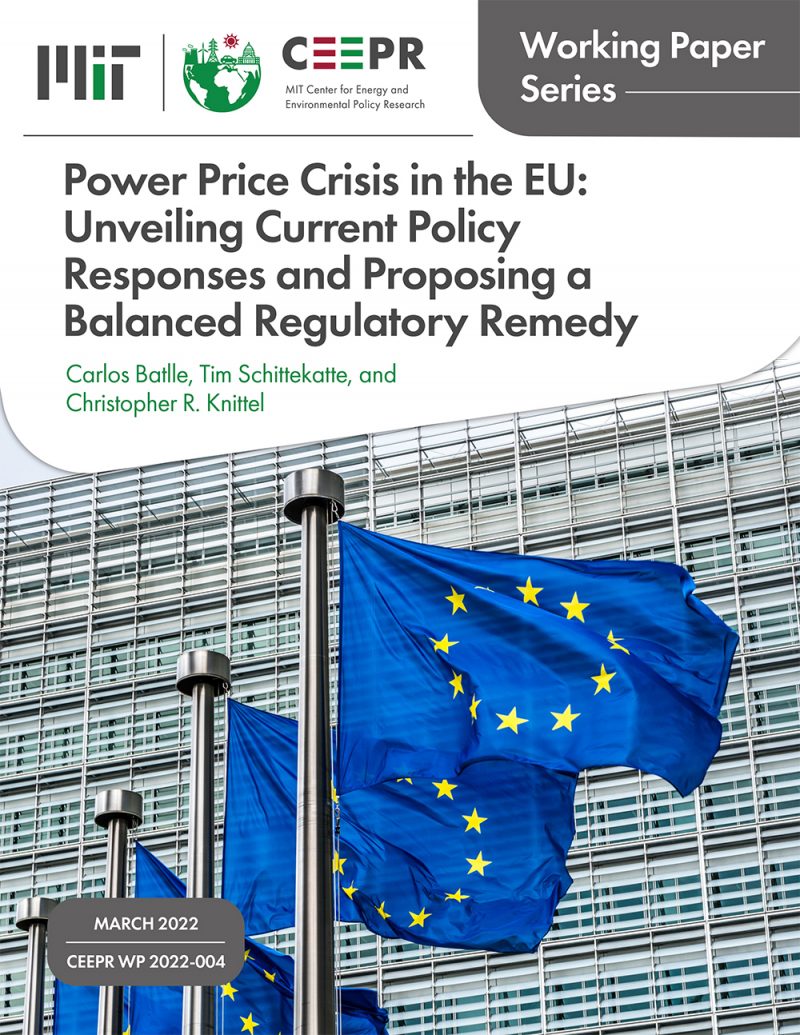Power Price Crisis in the EU: Unveiling Current Policy Responses and Proposing a Balanced Regulatory Remedy
Carlos Batlle, Tim Schittekatte, and Christopher R. Knittel
March 2022
For several months, electricity prices in the European Union (EU) have been at sustained and unprecedentedly high levels. This situation has caused national governments to introduce temporary measures aimed at limiting the increase in end-user electricity bills. A number of governments argue that this situation calls for a wider reform of electricity markets in the EU — beyond the mere introduction of temporary measures. Their central message is that the price paid for electricity by consumers shall be linked to the average cost of generation, instead of being set by the marginal generation technology (often gas-fired plants) as it is today. It is, however, unclear how governments plan to reach this objective without overhauling the fundamentals of electricity market design and without affecting the power system efficiency both in the short run and long run. Thus, we start by reporting, interpreting, and assessing what has been publicly said about the need for a wider electricity market reform.
Then, we review the measures that have actually been introduced by Member States. We particularly discuss and criticize the two kinds of national measures that have been implemented but go beyond the European Commission (EC)’s recommendations: taxing of (alleged) windfall profits and mandating auctions for bilateral contracts. We also discuss two other potential measures that have been brought up in many of the conversations held over the last weeks and thus might be pursued, but which we do not consider as efficient approaches either: volume-restricted auctions for renewable energy source (RES) and negotiated long-term contracts on behalf of consumers.
Finally, we develop policy and regulatory recommendations. We start by supporting the measures proposed by the EC: the introduction or extension of energy poverty measures, the reduction of taxes and levies in the bill, and the acceleration of RES deployment. However, since the economic and socio-political situation is diverse across the EU, we explore alternatives for the Member States in which those measures are considered insufficient or even infeasible. We suggest that regulators could design and run auctions to purchase a long-term financial product on behalf of selected tranches of end users (deemed unable to withstand periods of sustained high prices). This would account for the fact that many financial instruments that might improve efficiency does not currently exist. The goal of this financial derivative, that we call “stability options”, is to fulfil the objective of hedging those tranches of end users from extreme and long-lasting price shocks (keeping the monthly bills within acceptable limits), while respecting the basic market competition rules, avoiding any distortion of the short-term market price signal, and more importantly, without hurting the regulatory credibility of the European internal market.



